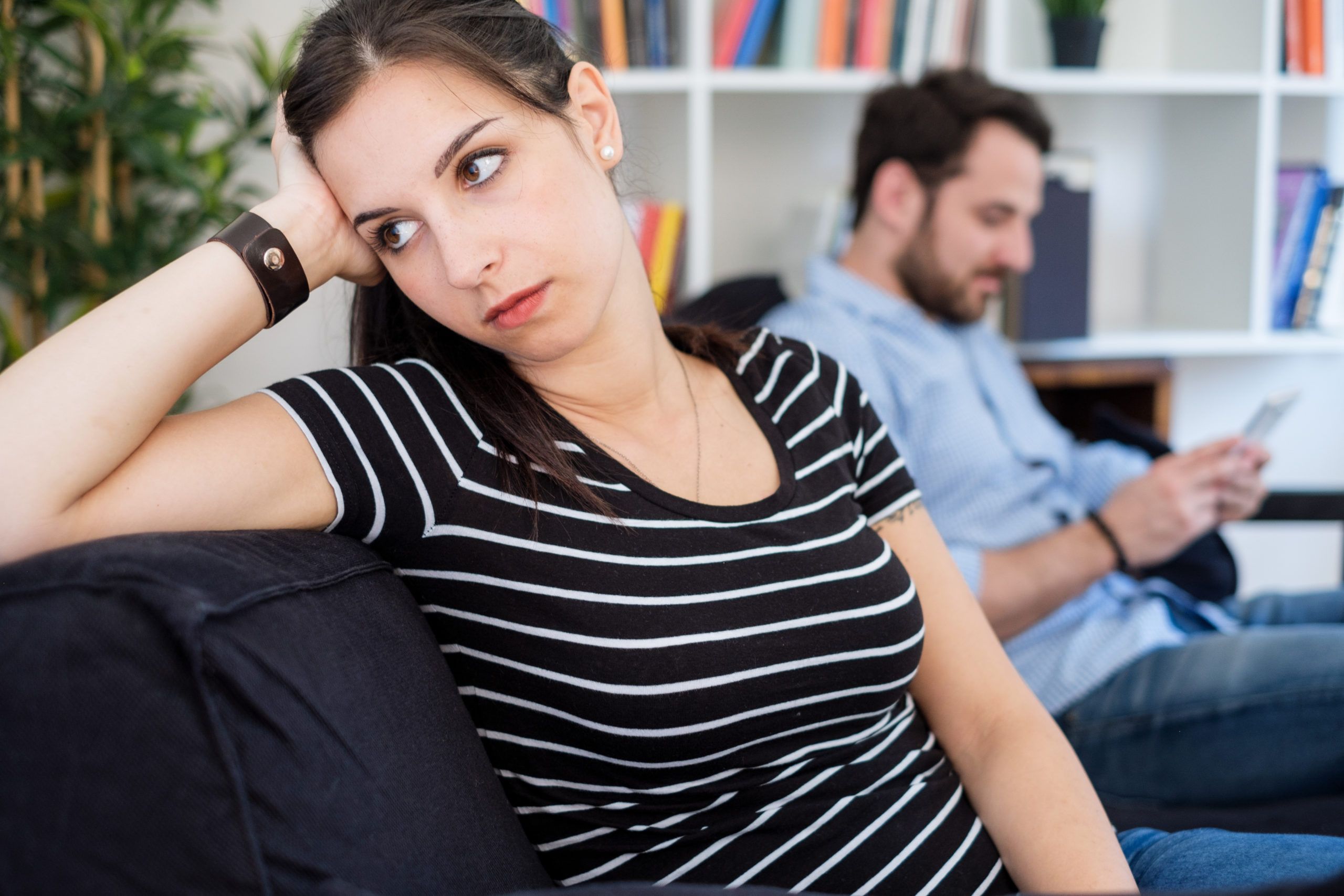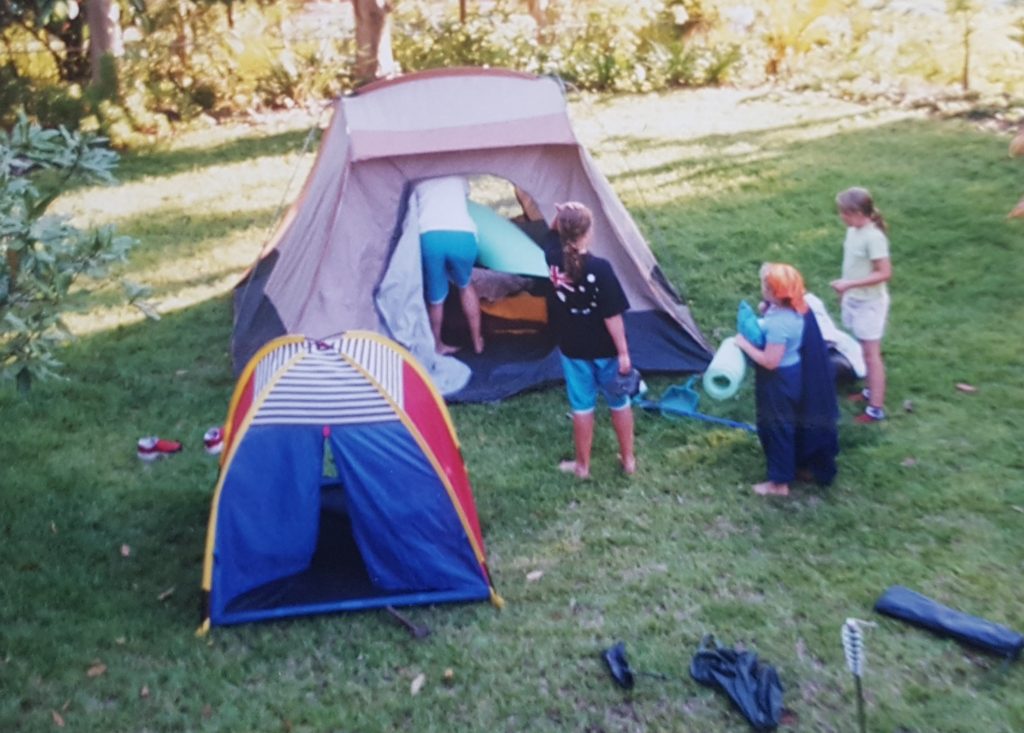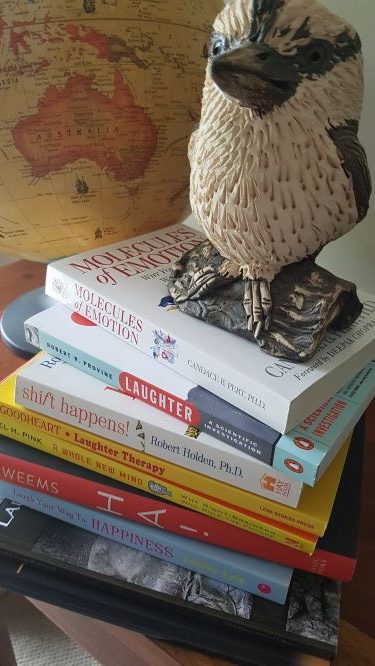
Laughter exercises to beat boredom at home
Not quite a month ago, Australia was plunged into a human biosecurity emergency in the fight to contain coronavirus (COVID19).
We’ve seen restaurants, clothes stores, gyms, libraries, schools, places of worship — even beaches — closed! We’re asked to only leave home for essential groceries, for exercise or medical appointments. It’s school holidays. This Easter a staycation is literally restricted to the backyard.

Many of us are finding the days a lot longer.
Are you, dare I say the word, ‘bored’?
I’m not good with boredom. Ask my husband (aka DearHeart). I get antsy.
As psychiatrist Norman Doidge has said:
“Nothing speeds brain atrophy more than being immobilized in the same environment: the monotony undermines our dopamine and attentional systems crucial to our brain plasticity.”
Without laughter yoga sessions to deliver – and no laughter club in the park – I’ve been grateful that my other professional skills have been in demand for work, but there are still a lot of hours to fill. Are you feeling that too? What have you been doing?
I’m baking more (DearHeart has a sweet tooth that may well need dental attention after this period of self-isolation); I’m dancing at home like no-one is watching (because no one is: I restrict my cavorting to when DearHeart is outside!). I go for more long walks in my neighbourhood (and covet the swimming pool down the road that is covered up, banned); there’s Facetime to connect with the kids and friends… I do laughter yoga alone (or sometimes with DearHeart). Join me doing mental floss or read my blog describing some of my favourite ‘do alone’ laughter yoga exercises.

Then there are books to read or re-read, which has brought me back to Laughter therapy: how to laugh about everything in your life that isn’t really funny. Psychotherapist Annette Goodheart published this in 1994. This was before Dr Madan Kataria devised the regimen we know as laughter yoga. At that time, she’d used laughter for years as a cathartic tool to emotionally release fears, worries, and problems.
3 laughter myths busted
Goodheart, as Dr Kataria has done since, put paid to three myths about laughter:
- We do not need a reason to laugh. It’s a natural, feelgood mechanism.
- We don’t laugh just because we are happy – we can laugh when sad or tired or stressed or in pain if we allow ourselves to do so – but we are happier when we laugh.
- Humour and laughter do not need to coexist. Humour is an intellectual process and laughter is a physical one. We can just laugh.
In her book, Goodheart wrote specifically about laughing through three particular emotions we don’t like: fear, anger and boredom.
How laughter zaps boredom
It’s boredom I want to address here. Boredom has its reasons and benefits as this YouTube clip explains. How you deal with boredom is critical to your health. Prolonged boredom can morph into a sense of hopelessness or helplessness or apathy. That’s not healthy. That sounds like depression (I speak from lived experience, not as a psychologist or psychiatrist).
Boredom is a sign that your body wants a reward. It’s seeking more dopamine. Laughter is just the ticket. Not just any sort of laugh, but musical child-like laughter, wrote Goodheart: the belly laughter we seek out and sustain in laughter yoga. When we sustain our laughter, the body is able to release a DOSE of feel-goods: dopamine, oxytocin (which we are sadly lacking in thanks to the ‘no hug’ 1.5m social distancing rules), serotonin and endorphins.
A number of laughter clubs have gone online during the COIVD-19 crisis. Use your search engine to find one and laugh on.
Goodheart laughter suggestions to beat boredom
In How to laugh about everything in your life that’s isn’t really funny, Goodheart suggests 25 ways to help yourself to laugh. Some of these can’t be followed during this period of self-isolation but here are a couple you could try if you are alone:
- Play with animals. Studies have shown that animals have a noticeable impact on people’s moods and physical states.
- Make a ‘serious’ list and be very serious about it. Read the list out loud, to yourself, in front of a mirror. Goodheart suggested this exercise enabled you to see how much daily life was peppered with stressful situations and to get a grip on perspective.
And for those with another in the household during self-isolation, Goodheart’s suggestion is a winking meditation:
Sit on the floor facing one another and look into one another’s eyes, lovingly. And then start to wink. One eye closed, then opened; the other eye, closed and opened. At speed. Winking almost always results in laughter.
Goodheart wrote that laughter was an enjoyable way out of feeling ‘bad’. I’ll second that!
(c) 2020 HeatherJoy Campbell
HeatherJoy Campbell is Queensland’s leading trainer and facilitator of laughter wellbeing workshops, using the platform of laughter yoga to facilitate stress-busting and team-building wellness sessions in workplaces, communities and aged care. She has an unquenchable thirst to learn and share the emerging science of happiness.